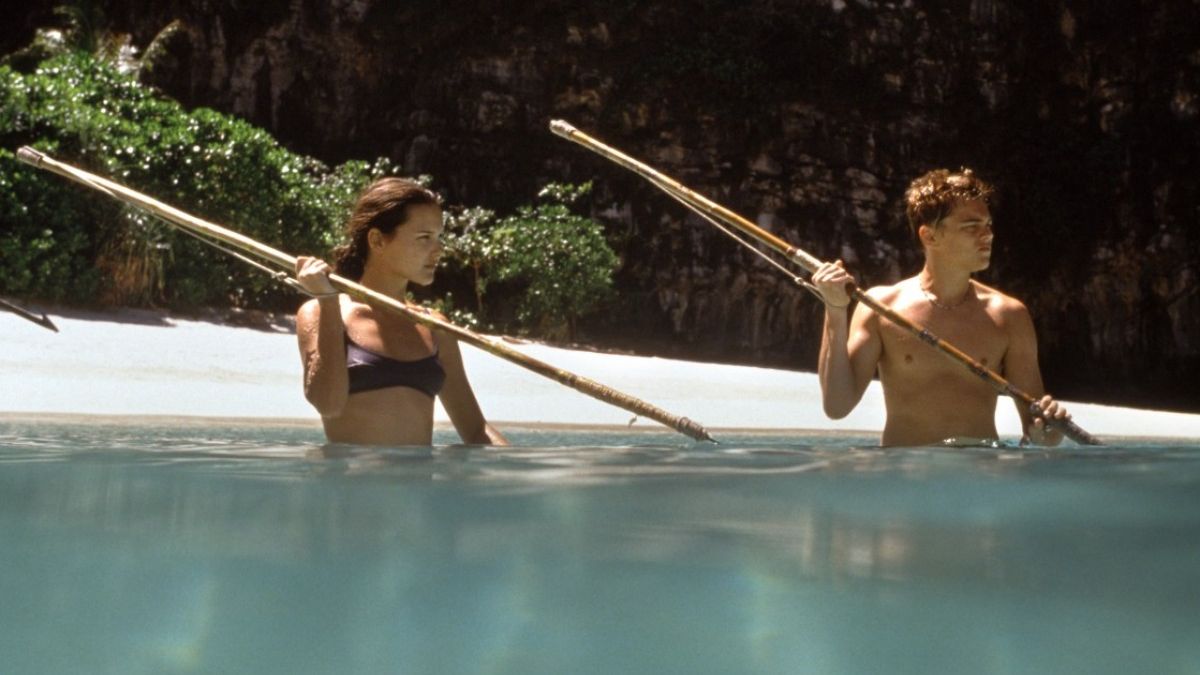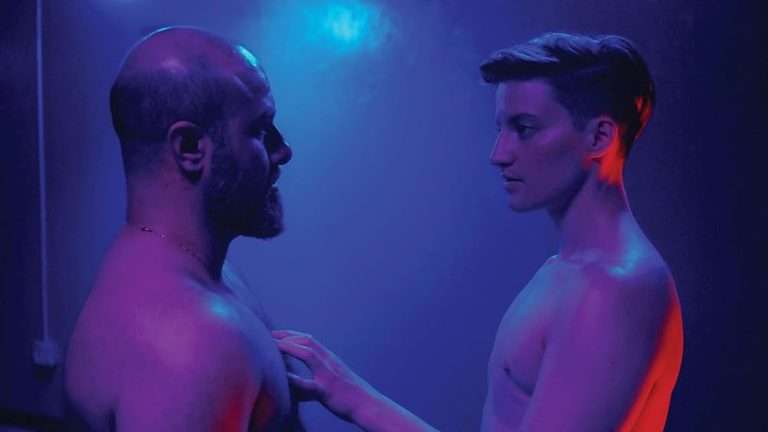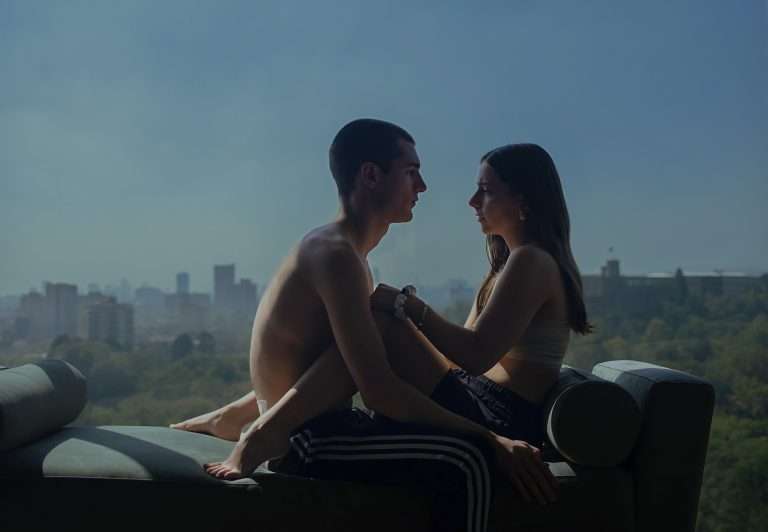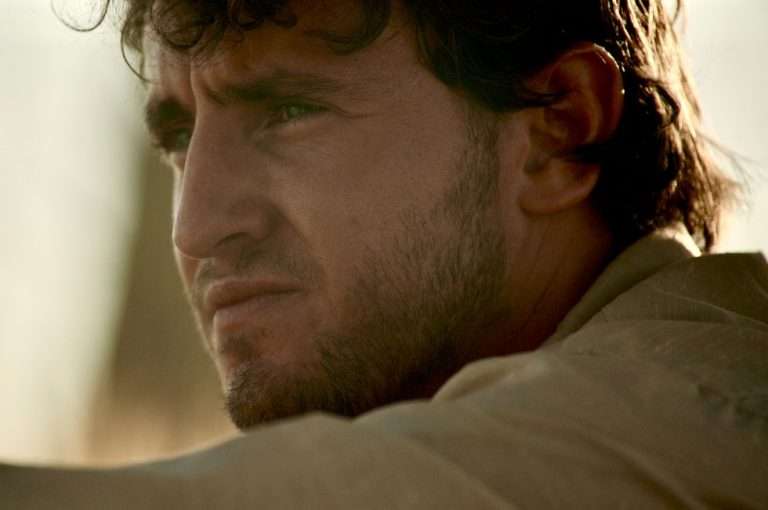Danny Boyle is one of the greatest filmmakers currently working. He is known for renowned works like “28 Days Later” (2002), “Trainspotting” (1996), “127 Hours” (2010), and “Slumdog Millionaire” (2008). Boyle is one of those filmmakers who has created and adapted a style so distinctive that every time we see something similar in another film, it immediately reminds us of him. His signature often includes documentary-like, shaky handheld camerawork.
Boyle frequently collaborates with cinematographer Dod Mantle and writer/director Alex Garland, with Mantle bringing influences from Cinéma Vérité and Dogme 95. Interestingly, however, the cinematography in “The Beach” (2000), handled by Darius Khondji, is remarkably steady and polished, a departure from Boyle’s usual style.
The Beach (2000) Plot Summary & Movie Synopsis:
The film begins with Richard (played by Leonardo DiCaprio) narrating the story of how he left his life in the United States and why he ended up in Thailand. Richard is a young man—too young to start his own life, yet already eager to run away from it. He meets a drunk Scottish man staying in the room next door. Richard is aware that the man is intoxicated and reckless, but he believes the story he tells him. The story is about “The Beach,” an island few people know exists.
To the drunken man, it is the most beautiful place—a perfect island. Richard becomes curious about this island. The next day, he finds two intriguing things: the drunk man from last night is dead now, and a map to the island is left behind. Richard, who craves adventure and rejects the societal norms imposed on him, decides to find the island. He shares this information with a girl and her boyfriend, who live next door. What they discover on the island and how their lives change afterward forms the basis of this coming-of-age adventure-thriller.
Why does Sal want no one new to the Island?
Sal (played by Tilda Swinton) is the leader of the group. The group views mainland society as parasitic and cancerous, polluting everything around them. They discovered this unknown island, which a few locals secretly use to grow cannabis illegally.
When Sal arrived at the island with her boyfriend, the locals initially did not welcome them, but they mutually agreed upon a few conditions. Sal and her group could live on the other end of the island. The locals agreed there would be no problems as long as no new people visited or joined them. For Sal, this arrangement was ideal. For many months, Sal has coordinated the clan under her command. She is the godmother of this island, and everyone must obey her rules in order to continue living there.
Why did Daffy leave the Island?
Daffy is one of the founding members of the island community, alongside Sal. Initially, life on the island appears perfect, with abundant cannabis, relaxation, play, and camaraderie. When supplies run low, one or two members travel to town, selling weed for money to buy necessities. However, isolation eventually breeds depression and disillusionment.
Daffy succumbs to these feelings, escapes the island, and ultimately takes his own life after meeting Richard at the mansion. Before dying, he creates a map and sends it to Richard. Though Richard initially dismisses Daffy as unhinged, the fantasy of living on a private island filled with endless cannabis and fresh fish from a beach surrounded by palm trees intrigues him far more than questioning Daffy’s motives. Richard is dishonest.
When Richard arrives at the island with Françoise (played by Virginie Ledoyen) and Étienne (played by Guillaume Canet), they quickly realise the island is neither empty nor exclusively theirs. Instead, they encounter armed locals guarding their cannabis plantations. They narrowly escape and meet Keaty, a member of the secluded community, who warmly welcomes them. Sal interrogates the trio about how they discovered the island, and they reveal Daffy’s map.
Also Read: The 10 Best Leonardo DiCaprio Movie Performances
Initially, Sal and the group trust their story, believing they kept the map and the island’s location secret. However, Richard isn’t entirely honest. The night before their journey, Richard lost the key to his room and ended up spending the night drinking with two Americans who camped next to his. In a drunken slip, he accidentally revealed the existence of the island and its cannabis plantations. Though Sal initially accepts Richard’s false assurances, when she learns about his betrayal, it severely jeopardizes his place within the community.
The Beach (2000) Movie Ending Explained:
What is with the video game?

The information from Richard intrigued the two Americans and their friends. Now, four people are sailing on a wooden boat toward the island. Sal spots them and questions Richard, who has no choice but to admit the truth that he playfully shared details about the beach and island.
As punishment, Sal orders Richard to stop the newcomers from entering the island. Richard finds himself isolated from the community, unsure how to carry out Sal’s orders but compelled to obey—not just because she holds authority, but because he fears she might expose their past sexual encounter during a supply run to the mainland. Richard has hidden this affair from Françoise, who left Étienne for him.
The combined pressure and drugs cause Richard to lose his grip on reality. It’s the 2000s, and young people are heavily into computer games. Richard imagines he’s in a video game, hallucinating scenarios of running away, being chased, and pursuing enemy troops. His depression escalates further when he sees visions of the deceased Daffy.
In Richard’s mind, both he and Daffy fight against societal norms. Although Keaty tries to help him, Richard is too far gone to regain consciousness. He even sneaks into the area where the locals grow cannabis, believing he can take them all down, influenced by films like “The Deer Hunter” (1978) and “Apocalypse Now” (1979).
What happens to the cult now?
Richard is unable to stop the four new visitors; the locals spot and shoot them dead. Witnessing these killings deeply traumatises Richard, whose delusional state intensifies. In a panicked attempt to escape, Richard inadvertently triggers a trap he previously set in the forest, harming a local. The locals, feeling betrayed and threatened, confront Sal and the rest of the group for violating their agreement. Desperate, Sal reveals that Richard copied and shared the map created by Daffy.
However, the locals’ leader doesn’t believe Sal’s excuses and demands that she shoot Richard with his gun. Although Sal hesitates—torn between her devotion to the cult and its members, she eventually pulls the trigger. The local leader had cunningly removed the bullets beforehand, causing a breakdown of trust among the cult members. Realising they’ve lost faith in Sal and the community, everyone decides to leave, indifferent to Sal’s distress. Heartbroken, Sal loses everything
What happens to Françoise and Étienne?
From the beginning, Richard is infatuated with Françoise, and she is aware of this. Although Françoise is already in a relationship with Étienne, she and Richard share a brief romantic encounter under the full moon and by the sea. This leads Françoise to break up with Étienne and pursue a relationship with Richard. The situation becomes awkward for Étienne and Richard within the small community, but Richard is initially happy. However, when Françoise discovers Richard’s affair with Sal, their youthful romance quickly comes to an end.
The Beach (2000) Movie Themes Explained:
Escaping Reality
Through Richard’s eyes, we see our innate desire to escape reality and find a place of tranquillity and freedom from responsibility. Rejecting the modern societal structures we’ve built and inhabit daily is a universal experience, regardless of age. We all seek escapism through different medium; cinema itself can offer this escape. However, as with all pleasures, escapism eventually ends. It’s unnecessary to philosophically dwell on the inevitability of endings.
Scientifically speaking, transformation is a constant—one phase must end for another to emerge. The same principle underpins Richard’s arc. In the end, he returns to the very reality he once sought to escape, strangely relieved despite the wreckage left behind. What once felt like paradise unravels the longer one remains detached from the rhythms of ordinary life. It may sound conservative, but the truth remains: change is inevitable, and even our escape routes eventually lead us back to ourselves.




![Frozen 2 [2019] Review – Lacking The Magic](https://79468c92.delivery.rocketcdn.me/wp-content/uploads/2019/12/Frozen-2-768x432.jpg)



![The Pez Outlaw [2022] ‘SXSW’ Review – An Outlandish Story Told In An Imaginative And Empathetic Way](https://79468c92.delivery.rocketcdn.me/wp-content/uploads/2022/03/The-Pez-Outlaw-2022-SXSW-768x433.jpeg)